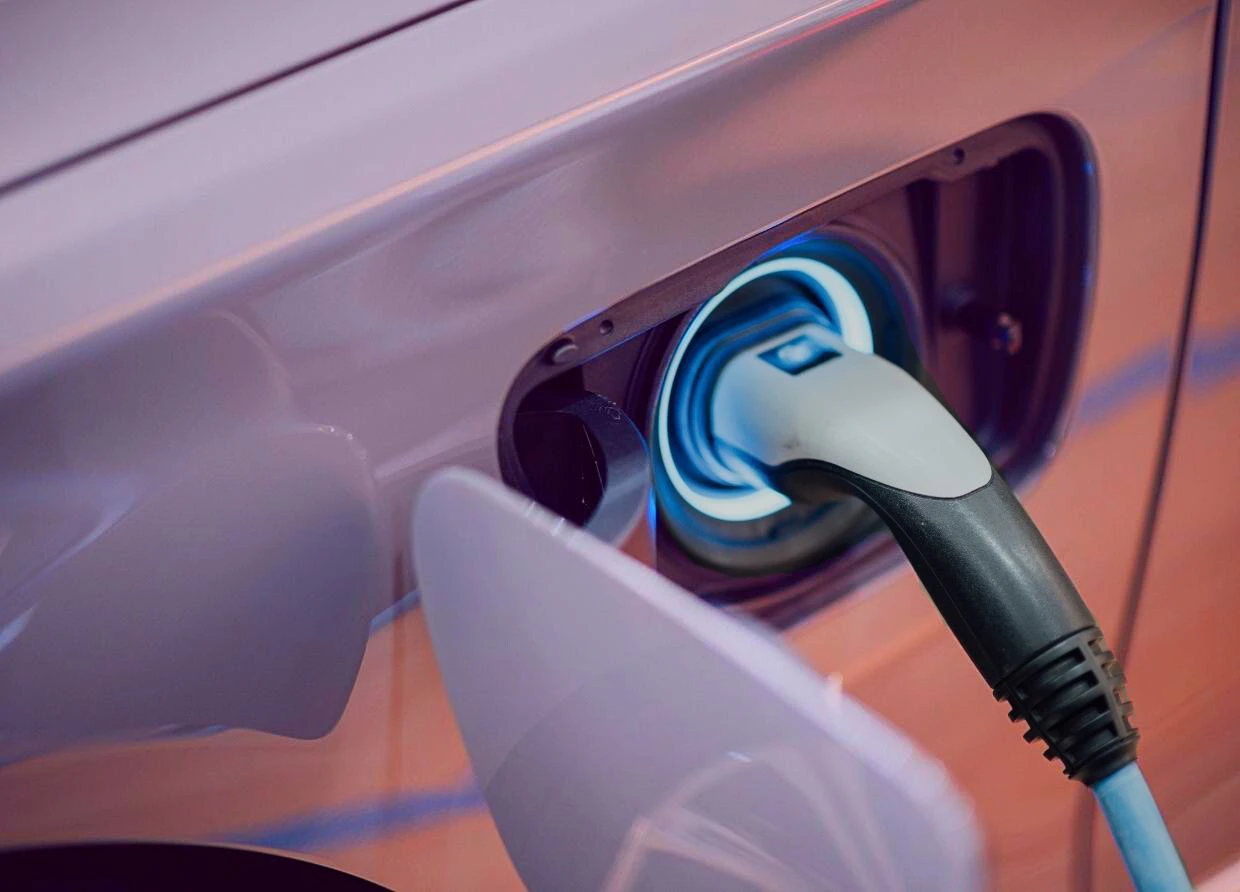ELECTRIC VEHICLES: WHY SHOULD WE CONSIDER USING THIS FUTURE TECHNOLOGY?
Electric vehicles are the technology of the future. Do we need to choose it for now?

Electric vehicles are now the future of mobility products in various countries, including Indonesia. In the past year, multiple facilities have been presented by the Indonesian Government to welcome the era of electric vehicles.
This future product offers various conveniences and the latest technology for everyday use. In Indonesia, the current population of electric vehicles is still tiny, but with a target from the Government, which hopes that by 2050 all cars sold in Indonesia will have electric technology, it is better to know what vehicles, both motorbikes and buses, are with electric technology.
As an illustration, Indonesian people are enthusiastic about being able to experience electric vehicle technology. Based on a research company Milieu Insight survey, less than half of Indonesian automotive consumers are interested in buying this future product. The research, which measured several Southeast Asian countries, showed that the highest interest in electric vehicles was in Thailand and Singapore. About 56 percent of consumers in both countries showed an interest in buying electric cars for their next purchase. Vietnam is 51 per cent, while Indonesia and the Philippines are 47 percent. The lowest is Malaysia which is only 39 percent.
From this research, it is also sought why people are reluctant to glance at electric vehicles. Most of it is on infrastructure issues such as few charging stations, as well as price. In Singapore, 71 percent said there were too few charging stations. For the same reason, 59 percent of Thai consumers and 57 percent of Vietnamese consumers. Regarding price reasons, consumers in Malaysia are 56 percent, in Indonesia, 47 percent.
View this post on Instagram
Why should electric vehicles?
We will return to the fundamental question, why does the world today see electric vehicles as the future solution? The first is environmental issues, especially the production of too large carbon dioxide. The sector that is easiest to make environmentally friendly policies is automotive.
Then in terms of technology development, although currently, battery prices are still high, it is projected that more electric vehicles can suppress battery prices in the future. This makes the electrical technology selected and continues to be developed to an undetermined extent at this time.
In particular, as a country with the largest nickel natural resources globally, Indonesia is obliged to process it into a world-scale battery industry. The potential for state revenue from processing natural resources to become battery products can bring in millions of US dollars.
Now on to electric vehicle products and why we should consider turning to this future technology. First, because of zero emissions. Owning an electric vehicle means that it will not produce exhaust emissions that affect better air quality. Little by little, as the population of electric cars increases, there will be changes that are felt.
Second, electric vehicles are easier to maintain. You are like having a toy with a large battery. Maintenance is also relatively easy because there is no conventional engine movement mechanism in it. Cheaper in terms of care because there is no more maintenance for engine oil replacement and the like.
Third, the sensation of driving an electric motor is like a sport-type vehicle on a conventional engine. This motor delivers instant power that makes driving even more enjoyable. At least even with the cheapest electric cars, this capability is still present.
The next advantage is saving in spending for charging when compared to fuel. Electric vehicles currently can travel quite far, and when combined with the cost for electricity in charging batteries, of course, this is cheaper than using fuel oil. The effect is on spending in the long run and more affordable ownership.
The last is the ease of both tax rules and regulations on the highway. The electric vehicle tax in Indonesia is currently 0 per cent and is considered cheap for an annual tax. Another convenience is that electric vehicles are freed from restrictions on mobility on the streets of Jakarta, as well as more reasonable parking rates. In addition, electric vehicle owners will get a discount from the electric company when charging at home at certain hours.
View this post on Instagram
The disadvantages of electric vehicles for now
As stated in the marketing research above, electric vehicles today lie in cost and infrastructure. If you want to have an electric car, especially in Indonesia, it is better to meet the following requirements.
First, do not make electric vehicles the primary vehicle. This means that you already have a car with a conventional engine and an electric vehicle as your second vehicle.
The reason is, with limited mileage and battery power, of course, if you want to travel longer distances, it is better to use a car with a conventional engine. This mileage issue can be overcome by building charging stations in strategic locations. Unfortunately, for now, it still lacks in terms of quantity and less in terms of comfort. Some electric charging stations do not have fast charging capabilities, which will make the journey to one point take longer.
In addition, having an electric vehicle means that you are ready to change your travel habits. Previously, the owner had never thought about the mileage; by driving an electric car, the owner was obliged to calculate the mileage and estimate when to charge the electricity and whether there was a charging station. This charging problem has indeed been made easier with charging technology at home. However, this means that electric vehicle owners must have sufficient electricity to charge their electric vehicles.
Most essential at this time is the price. In Indonesia, the lowest price for electric vehicles is around Rp 600 million or around $45,000. Indonesian people currently can buy cars from Rp 200 million to Rp 300 million. This corresponds to Indonesia's gross domestic product. You can imagine that electric vehicles are now only for certain circles. And this is not good for achieving Indonesia's target population of electric vehicles.
The hope is that there will be encouragement from government regulations to make cheap electric vehicles. In addition, it is hoped that they will present cheap but also high-quality electric vehicle products for manufacturers. This is related to knowledge of products that must have various safety features.
As expressed by Yannes Martinus Pasaribu, an academic and automotive observer from the Bandung Institute of Technology (ITB), who said that to encourage the EV population further, it goes hand in hand with presenting products that are more affordable for various groups because the characteristics of vehicle users in Indonesia are not people who care too much about technology but rather the need for personal transportation to facilitate their activities.
"The younger generation sees EV, not from the zero-carbon issue and the construction of the technology. So communicating the value of EV to the Z or Alpha generations in the future has not touched on that issue. This research result shows that the majority of people are interested in EVs," said Yannes.
View this post on Instagram
Hybrid ease that the government doesn't look at
There is one technology that can be the answer to the problems above. This technology is called hybrid. This is a technology that combines conventional engine and battery technology. The mover can be one or both, and this is considered the most reasonable.
In hybrid technology, fuel consumption can be reduced by a combination of two forces. In addition, with hybrids, you are no longer afraid of having trouble finding an electric charging station. Solutions that have existed even about two decades.
In addition, with the existence of hybrid vehicles, from the industrial side, components can be saved and slowly learn to switch to supplying electric vehicles. As explained above, electric cars do not require many features, which poses a threat to the automotive component industry in Indonesia. Millions of workers are threatened with losing their jobs when electric vehicles come to Indonesia.
It's a shame to see hybrid vehicles don't get the zero per cent tax rate that electric vehicles receive. Hybrid vehicles can be a bridge for consumers of conventional cars to electric.
Those are some of the advantages and disadvantages of electric vehicles for now. Have you decided to buy an electric car immediately? That means you are the chosen people who can experience this future technology faster. Congratulations!
#THE S MEDIA #Media Milenial #electric vehicle #indonesia #ev #electric car



























